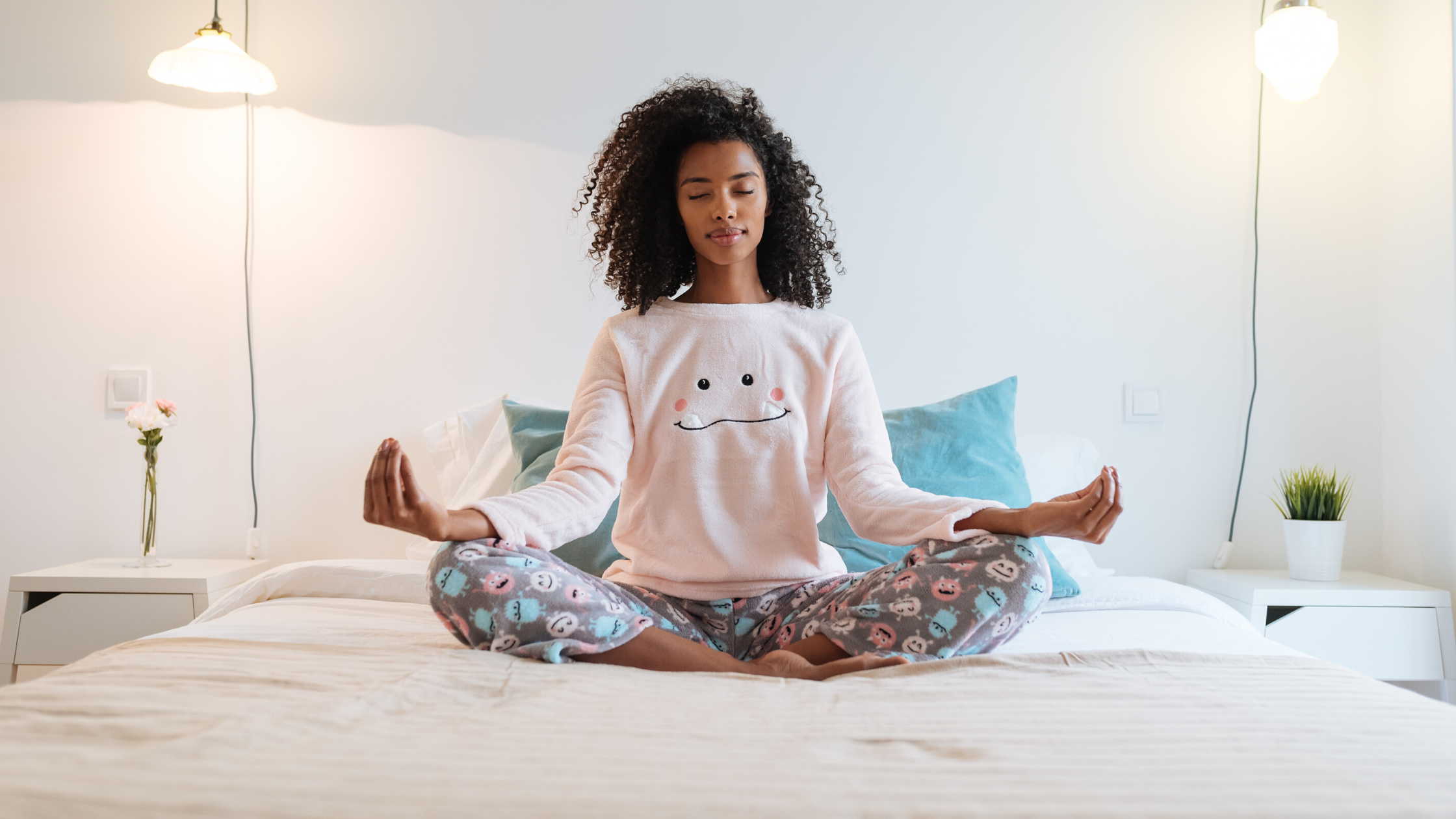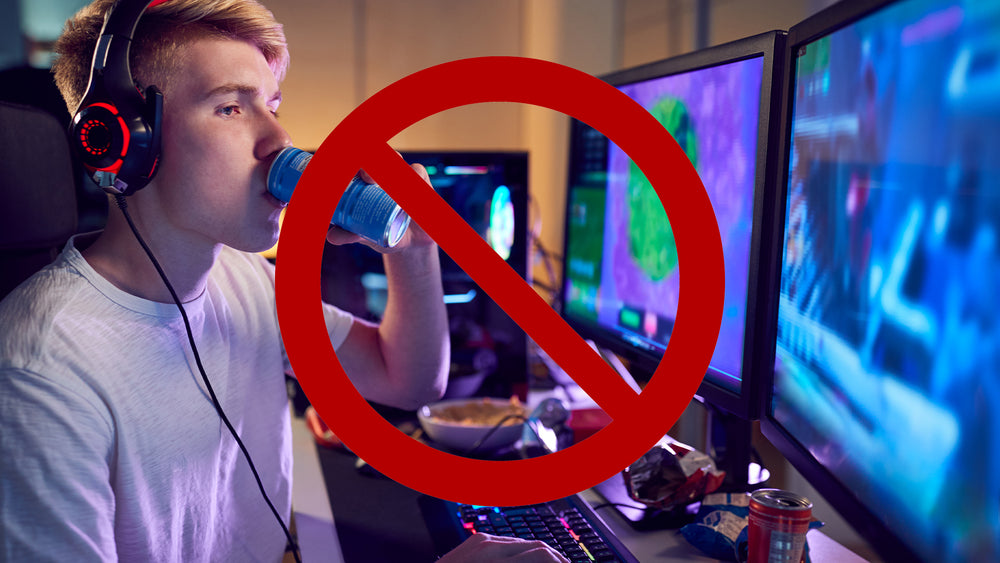Insomnia affects 30 percent of the US population, and 10 percent have impaired function during the day due to lack of sleep. Statistics indicate that adults age 18 to 29 experience more sleepless nights than other age groups, and parents have more disruptive sleep than childless individuals.
Many factors lead to insomnia, although stress is the most common cause. Certain medications, depression, and excessive caffeine or alcohol use also cause sleepless nights. Some medical conditions, such as asthma, acid reflux, diabetes or restless leg syndrome can keep you up at night.
If you have insomnia, talk to your doctor to rule out a medical problem or medication use as causes. If garden variety stress is at the root of your insomnia, as it is for most people, incorporate one or more of the following steps into your nightly routine. You’ll sleep better, and your overall well-being will improve.

Take a Relaxing Bath or Shower
Take a bath or shower an hour or two before bedtime to relax and help you get to sleep sooner. Washing off the sweat and dirt from the day will make you feel better. Even if you usually take a shower in the morning, consider taking one at night (or better yet, take a bath.) You may be in a hurry to shower in the morning, but bathing or showering at night gives you more time to relax.

Do Yoga
The right yoga poses loosen tight muscles and calm you down after a stressful day. The Cat-Cow, Downward Facing Dog and Child’s Pose help loosen tight muscles in the lower back and shoulders. Holding the legs-up the wall pose for 20 minutes won’t hurt your back and will calm you, physically and mentally. The Seated Forward Bend is so relaxing you may even doze off while performing the pose.
Meditate
Meditating in silence, or better yet, while listening to relaxing music, relaxes you and clears the mind of the day’s worries. Meditation has been proven to increase melatonin, as well as its precursor, serotonin. It also lowers blood pressure and heart rate.
Find a quiet place to meditate. Close your eyes and concentrate on your breath. Inhale and exhale deeply. Allow thoughts to drift in and out of our mind. Don’t dwell on them - just let them pass. If you’re new to meditation, you may only be able to sit still for a few minutes. As you practice more, you’ll be able to meditate longer without obtrusive thoughts entering your mind. Most people get benefits from ten to 20 minutes of meditation. Some people can meditate for much longer.

Eat Light Foods
Eating a big meal before bed may cause heartburn when you lie down. Acid and food from your stomach can backflow into your esophagus and cause discomfort. If you do feel hungry at night, avoid junk food or sweets. Eat yogurt or nuts to increase melatonin levels and help you get to sleep faster. Turkey, which contains sleep- inducing tryptophan, cherries, warm milk, and cottage cheese are other good choices. Stock your kitchen with foods that contain melatonin, tryptophan or antioxidants (like berries or other fruits) for late-night snacks.
Eat meals and snacks within a six to 12 hour time frame. Time-restricted eating is called intermittent fasting. It increases metabolism, regulates your sleep pattern, and helps you lose weight. When you eat is almost as important as what you eat. Eat dinner early in the evening, at least three hours before you go to bed.
Eating earlier in the evening will give your body time to digest your food properly and you’ll avoid stomach and acid reflux problems when you go to sleep.
Don’t drink alcohol before going to bed. Alcohol is a depressant, and even though it makes you feel tired, it disturbs your circadian rhythm. You can drink a glass of wine with dinner, but avoid drinking a nightcap to feel drowsy. A nightly drink will increase your tolerance for alcohol, making it harder and harder for you to get to sleep.
Use Essential Oils
Essential oils, such as lavender can reduce stress and have a pleasant, calming effect. Chamomile oil reduces anxiety and depression. Clary sage oil reduces the stress hormone cortisol and has a sedating effect. If you’ve had an especially stressful day, use this oil to relax and get to sleep. Jasmine oil has properties similar to many popular sleep medications.
You can dab a bit of essential oil on your hands and rub them together, or put some oil in an air diffuser to send fragrance all over a room. You can also burn aromatherapy candles before going to bed.

Take CBD Oil or Gummies
Many people use prescription sleeping pills, but these medications can cause dizziness, headaches, stomach problems, and other side effects. You can relax and get to sleep sooner by taking CBD gummies, without the problems caused by medication. Choose CBD gummies that are made specifically as a sleep aid. The best CBD gummies for sleep also contain other anti-inflammatory or sleep-inducing ingredients, such as melatonin, L-theanine, or turmeric. You can also add CBD oil to a beverage at night for more restful sleep.

Listen to Music
Listening to soft or relaxing music before going to sleep can help you sleep longer and have better quality sleep. Classical, jazz or rhythm and blues music may relieve some of the stress from your day and help you unwind. There are music apps and YouTube videos specifically designed to relieve stress through different sound frequencies and help you get to sleep. Some types of popular instrumental music can relax you and help you fall asleep quickly.
Science backs up the use of music as a stress-reliever. One study showed 62 percent of study participants listen to music every night to reduce stress. Another study showed that listening to music reduced anxiety in patients before surgery. Premature infants responded positively to live music, and dementia patients experienced less agitation when listening to music, according to other research.
Write in Your Journal
Writing in your journal at the end of the day is a great way to relieve stress. Get your feelings on paper (or in a digital file). Addressing your feelings about what happened during the day reduces the chance that you’ll toss and turn all night worrying about the day’s problems. Take 10 to 15 minutes to write about your experiences in a stream-of consciousness way. Don’t worry about format - just get your thoughts down on paper.

Turn off Electronics at Least 30 Minutes Before Bed
The blue light from Smartphone, tablet and laptop screens disrupt your body clock and keep you awake long past your bedtime.Using electronics before bed can delay REM sleep and reduce melatonin levels
Experts recommend you shut off electronics a half-hour to 45 minutes before you go to sleep. It takes time to detox from the blue light (and some of the content you may see, especially on social media.
Wheatgrass Gives You All the Nutrients You Need for Better Sleep
What you eat during the day, and the nutrients in that food, affect your health and how well you sleep at night. Eating a diet rich in fruits, vegetables, lean meats, and whole grains will keep you alert during the day and help you sleep restfully at night.
Supplement your whole food diet with wheatgrass to get more of the nutrients your body needs. Happy Girl Natural Mood Enhancer contains pure, high-grade wheatgrass. Wheatgrass has hundreds of vitamins, minerals, amino acids and enzymes to promote well-being. Happy Girl also has mood-balancing ingredients, including green tea extract, gotu kola, and cayenne pepper to relive stress and mild, non-clinical depression.
Learn more about Happy Girl and other Wheatgrass Love nutritional supplements here.
















